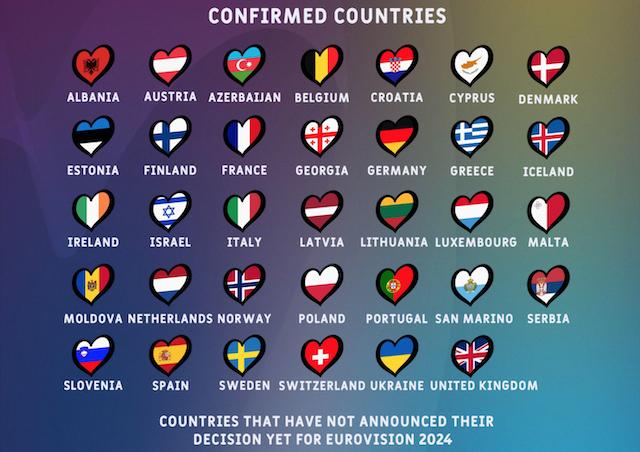The saga between Eurovision and Israel has escalated as the country grapples with the potential disqualification from the 68th Eurovision Song Contest. At the heart of this controversy are two songs, ‘October Rain’ and its runner-up ‘Dance Forever,’ both mired in contention over their perceived political undertones. Israel is under pressure, with a deadline until March 11 to propose a song that aligns with Eurovision's regulations.
Israel's initial entry, performed by the Russian-Israeli artist Eden Golan, was ‘October Rain.’ The song's lyrics poignantly reference the aftermath of an attack by Hamas on October 7, touching on themes of loss and resilience with lines that evoke the collective sorrow and defiance of a nation in mourning. The metaphor of "flowers," commonly associated with military casualties, and phrases like “They were all good children, each one of them” have ignited debate over the song's eligibility due to Eurovision's strict non-political policy.
The Eurovision judges have threatened to disqualify Israel's song entry to the contest because it "contains a political statement". The lyrics are in the following link. Judge for yourselves. Send Eurovision a note if you think they are being picayune ...https://t.co/qRBtcauQd5
— Mike Stone (@MikeStone972) February 25, 2024
The Israeli Culture Minister, Miki Zohar, has publicly defended the song, arguing its artistic expression and emotional resonance transcends political discourse. He urged the European Broadcasting Union (EBU) to maintain a stance of neutrality, emphasizing the importance of separating politics from art.
However, the controversy didn’t end with ‘October Rain.’ ‘Dance Forever,’ the second choice and a song that also subtly references the tragic events of October 7, has reportedly faced rejection by the EBU. This song, blending English and Hebrew, was seen as Israel's alternative contribution, potentially sidestepping the political implications tied to its predecessor.
The lyrics of ‘Dance Forever’ encapsulate themes of hope, strength, and the transcendent power of dance and music. Despite its uplifting message, the underlying reference to the October 7 attack appears to have placed it in similar contention with the EBU’s rules.
The Israeli Public Broadcasting Corporation (KAN) has taken a firm stance, indicating no plans to replace ‘October Rain,’ suggesting that if the song is not accepted, Israel might withdraw from the competition altogether. This situation has sparked a broader dialogue on the role of art in political spaces and the standards applied by international platforms like Eurovision.
The Israeli song for Eurovision is called October Rain. EBU reporterdly threatens to deny the song for having a political content. Israel Hayom newspaper was wondering if Europeans are gonna figure out that "flowers" is codename for fallen soldiers. So just making sure you know. pic.twitter.com/2JDFlBMhJ3
— B.M. (@ireallyhateyou) February 22, 2024
Israeli President Isaac Herzog has advocated for constructive dialogue between the EBU and KAN, highlighting the significance of Israel’s participation in Eurovision not just as a cultural milestone but also as a counter-narrative to the exclusion and animosity faced on global stages.
The debate extends beyond the EBU and Israel, reflecting broader tensions regarding inclusion and political neutrality in international events. The decision to exclude Russia for its actions in Ukraine while facing calls to disqualify Israel over allegations related to Gaza has underscored inconsistencies and sparked debates on fairness and bias in Eurovision’s policies.
The Israeli song talks about our reality as Israelis and Jews since Oct 2023. It is not political. Stop the Bias. Enough! https://t.co/Kb9y4xje21
— Iris (@streetwize) February 21, 2024
As the deadline looms, the international community watches closely. Calls for boycotts in countries like Finland, Iceland, and Sweden juxtapose a letter signed by over 400 figures from the entertainment industry advocating for Israel's inclusion. The outcome of this standoff will not only decide Israel’s place in the 2024 Eurovision Song Contest but also test the boundaries of art, politics, and cultural diplomacy on the world stage.


